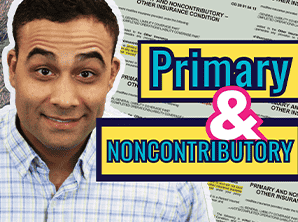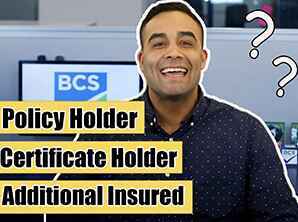Video Transcript
In this video we are going to understand the difference between Ongoing and Completed Operations.
When contractors are hired for a job they are required to show proof of insurance and usually they have to name the individuals hiring them as additional insureds on the commercial general liability (CGL) policies.
But Why is this important?
Because if someone gets hurt or if something breaks while performing work on site, or even if some type of damage is found after the work has been completed, both the contractors and individuals hiring them are covered.
But what do these terms “ ongoing and completed ops” even mean? Let’s go back to basics, the dictionary defines “ongoing” as “still in process” and “continuing”.
Operations that are “ongoing” refer to work not yet completed. On the other hand, “completed operations” refers to work that has been finished on the job site.
For a better understanding, Let’s take a look at some examples:
Imagine a property owner hiring an electrician to add an indoor light. The electrician leaves his toolbox in the hallway while he is working. An office employee trips on the toolbox, falls, and injures his knee. That would be an example of bodily injury that resulted from ongoing operations of the electrician. Property damages may also be covered under the ongoing operations coverage prevision if the damage happens while the electrician is working at the job site.
What happens if bodily injury or property damage results from a contractor’s work, days or even years after the work has been completed? If the contractor has the owner of the property listed as an additional insured for completed operations then the owner of the property may have coverage under the contractor’s policy.
The most common additional insured endorsement for contractors is the CG 20 10 which usually refers to ongoing operations only. The CG 20 37 provides coverage to the additional insured for completed operations only.
If you come across the phrase “your work” you need to check if it refers to both ongoing and completed operations or ongoing operations only. The phrase "your work" usually refers to both but there may be exclusionary language in the endorsement that excludes completed operations. Read these endorsements carefully to find out!
To know more about endorsements and certificates of insurance, please subscribe to BCS university.
Become an insurance pro one lesson at a time!
Sign up for our free BCS Basics email course to get weekly lessons sent right to your inbox.



